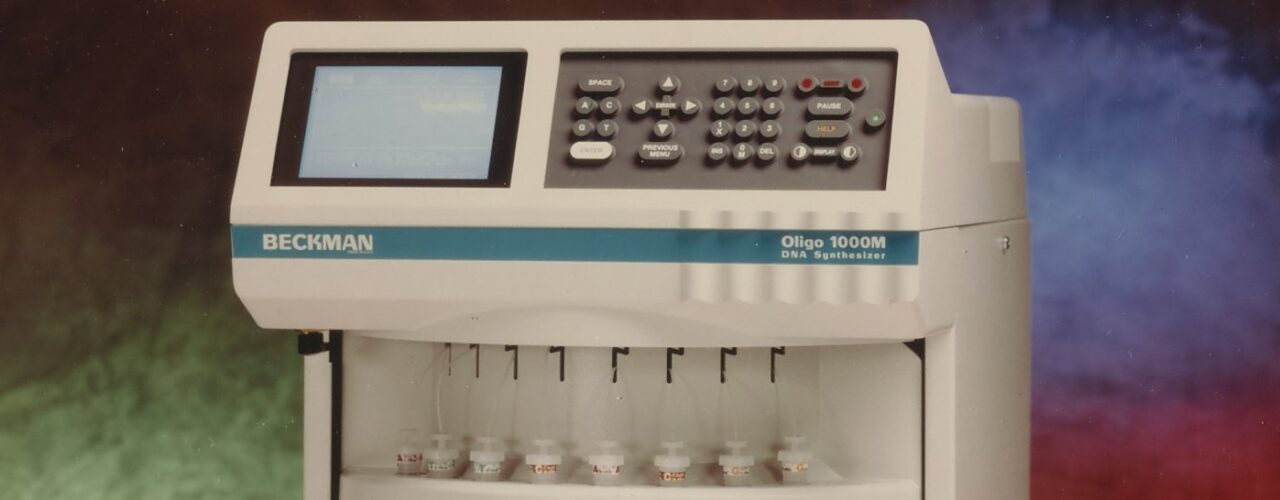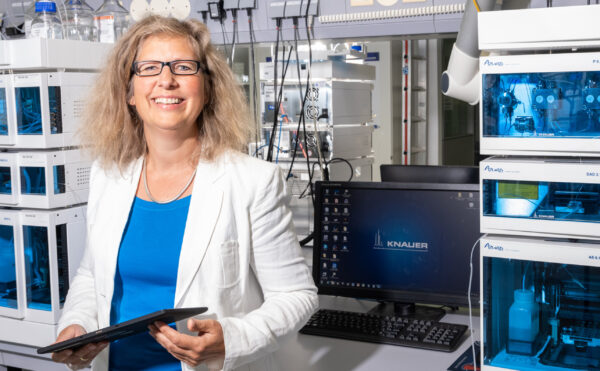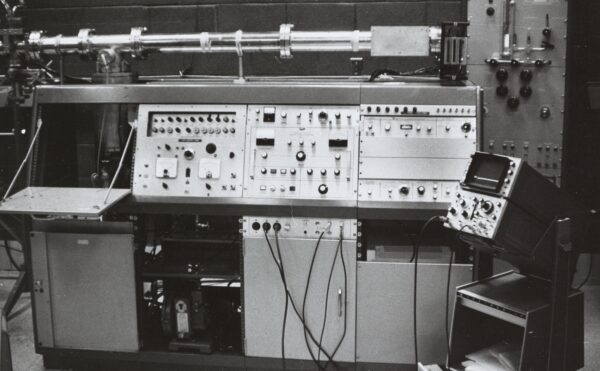
Institute, Tsinghua University Partner to Present Online Exhibition
‘From Peas to the Human Genome Project’ features instruments from our collections to commemorate 200th birthday of genetics founder Gregor Mendel.
The Science History Institute has partnered with China’s Tsinghua University to present From Peas to the Human Genome Project, an online exhibition celebrating the 200th birthday of Gregor Johann Mendel, the Austrian biologist known as the “father of genetics.”
This collaboration—the first between the Institute and Tsinghua—is the result of our ever-growing international outreach and strengthens our reputation as a leading resource in the history of science throughout the world.

The exhibition, which traces the history of genetics research, DNA technology, and the development of analytical instrumentation, features several scientific instruments from the Institute’s digital collections, including the Coleman Model 3D pH Meter and the Beckman Oligo 1000M DNA Synthesizer (pictured above).
From Peas to the Human Genome Project was organized by Tsinghua University’s Department of the History of Science and the Tsinghua University Science Museum.
About Gregor Johann Mendel
Gregor Johann Mendel (1822–1884) was an Austrian biologist, geneticist, meteorologist, and Augustinian monk who discovered the basic laws of heredity and laid the foundation for the science of modern genetics through his pea plant hybridization experiments. The importance of Mendel’s work was not recognized until 1900, 12 years after his death and 34 years after its publication. His discoveries of how traits (such as color and shape) are passed down from one generation to the next introduced the concept of dominant and recessive modes of inheritance, now known as Mendelian inheritance.
About Tsinghua University
Tsinghua University was founded in 1911 as Tsing Hua Imperial College and earned university status in 1925. Based in Beijing, Tsinghua is one of China’s most prestigious and influential research universities, with 21 schools and 59 departments in such fields as science, engineering, humanities, law, medicine, history, philosophy, economics, management, education, and art.
More News
Science History Institute, Pittsburgh Conference to Present Pittcon Heritage Award to Alexandra Knauer
The CEO and owner of lab instrument manufacturer KNAUER will be honored at the 2026 conference in San Antonio on March 8.
LyondellBasell’s Bob Patel Named 2026 Petrochemical Heritage Award Honoree
The prestigious award will be presented by the Science History Institute and the Founders Club on March 28 during AFPM’s International Petrochemical Conference in San Antonio.
Melissa Sherman Joins Science History Institute’s Board of Directors
The MOBILion Systems founding CEO will help support the Institute’s mission and strengthen our relationships in the life sciences industry.



